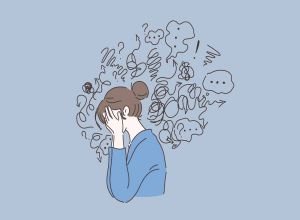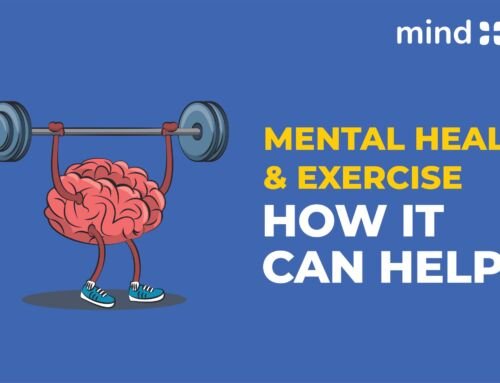Overthinking? How does it affect our mental health?
How can someone stop overthinking?
By Srishti Agarwal, Clinical Psychologist
Overthinking is a psychological condition that refers to the process of repetitive, unproductive, unhelpful thought in which the mind repetitively thinks too much either about the past or about the present and worries too much about the future. Overthinking tends to slow down your capacity to think rationally and clearly. People do not overthink on purpose meaning thoughts are most often automatic and habitual, and thus overthinking becomes a habit. Overthinking can occur due to many reasons as it might get triggered due to a traumatic incident that is haunting the person, or the person has an irrational fear (phobia) of something or someone. People who tend to overthink a lot are also very stressed, anxious, depressed, and isolated. Overthinking becomes a problem when it starts to affect your everyday life functioning.
Effects of Overthinking on Mental Health
Overthinking negatively impacts the mental health of a person and promotes or intensifies a vicious cycle of different forms of mental illnesses like stress, anxiety, depression, and personality disorders. Some of these are:
- Chemical Imbalance in the Brain: Overthinking leads to an imbalance in neurotransmitters like serotonin, dopamine, etc. that can harm the brain’s memory and feeling systems.
- Stress and Anxiety: Research has found that repetitive thinking and worry about the future create stress, anxious feelings, or unpleasant sensations.
- Depression: Depression makes the person overthink even more and suicidal thoughts and suicide, in particular, might occur.
- Panic Attacks: Due to overthinking, an individual may experience an episode of panic attack during which the person starts sweating excessively, turns red, or may even faint.
- Disrupts Sleep and Appetite: Your sleep quality will suffer if you overthink things before bed and it can either increase or decrease your appetite which will have a negative effect on your well-being.
- Impacts Problem Solving and Decision Making: Overthinking makes it difficult to make decisions and solve problems efficiently and it ultimately makes someone feel less confident in their actions.
- Hinders Daily Routine Activities: Constant overthinking makes you feel lethargic and unproductive throughout the day.

Ways to get rid of Overthinking
Overcoming overthinking is a task that is not mastered by many, but needs to be practiced at the earliest to break the vicious cycle of overthinking and promote mental and physical well-being. A few techniques are:
- Mindfulness: Mindfulness means being focused in the present moment, noticing the surroundings, and one’s thoughts and feelings, without judgment. During this process, you will simply sit and focus your attention on the sensation of breathing that helps you to be in the present moment.
- Deep Breathing: Deep breathing would help you to feel relaxed in the given situation. Sit comfortably and deeply breathe in via your nose, hold the air in your lungs, and then slowly exhale via your mouth. Try to practice it daily.
- Progressive Muscle Relaxation: To achieve a powerful feeling of relaxation either sit or lie down in a comfortable position. For each area of the body, you need to tense your muscles tightly Hold for 10 seconds, and attentively focus on how it feels. Then, release the tension, and notice how the relaxation feeling is different from the feeling of tension.
- Understand your thinking pattern: Identify situations or topics when you feel sucked in the vicious loop of overthinking and then try to identify the decisions that require careful analysis.
- Finding a distraction for self: In order to come out of the web of overthinking, you can engage in activities that are of interest.
- Journaling: Journaling allows you to pen down your thoughts and feelings to get to the root of the issue and gain newer perspectives.
- Say no to perfectionism: Constant need to do everything perfectly leads to overthinking and creates a vicious cycle of self-blame and low self-esteem.
- Understand your triggers: One way to reduce the patterns of overthinking is to understand the triggers of overthinking, and try to reduce the same.
- Understand your status of control: Sometimes not everything is in your control, and you tend to overthink even then. Hence, it is essential to understand your locus of control and gain insight into the things that you can and cannot control.
Seek professional help: If you are unable to control your overthinking and it interferes with your daily functioning, seek a professional to help- medications and psychotherapy. Psychotherapy can help you learn many skills to break and manage your vicious cycle of negative thought patterns that impact your feelings and behavior in an unhelpful way.





